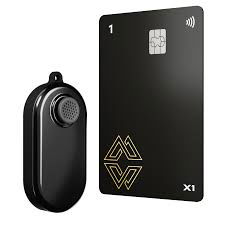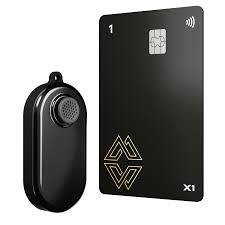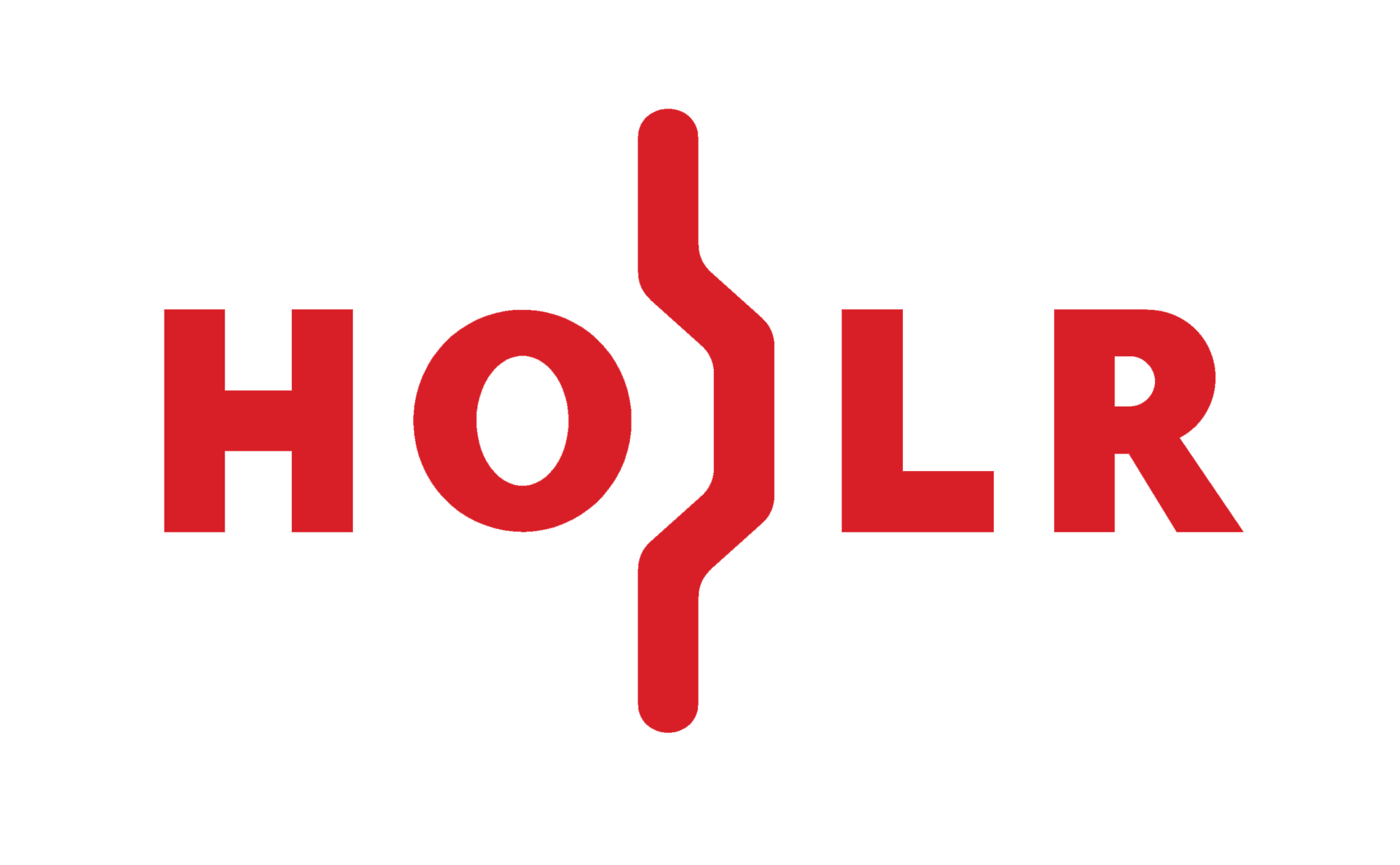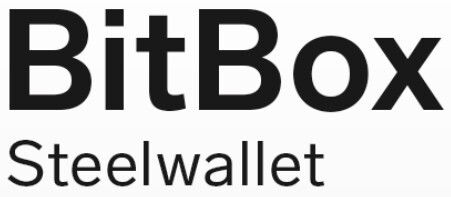Cypherock vs. Ledger, Trezor and KeepKey: Hardware wallet comparison

Introduction
Hardware wallets are becoming increasingly popular among cryptocurrency investors as they offer a secure way to store and manage digital assets. With so many options available, it can be challenging to choose the right hardware wallet that meets your security and convenience requirements. In this hardware wallet comparison, we’ll compare four of the most popular hardware wallets on the market: Cypherock, Ledger, Trezor, and KeepKey.
Each of these hardware wallets has its unique features, pros, and cons, which we’ll explore in-depth. By the end of this article, you’ll have a clear understanding of the differences between these hardware wallets and which one is best suited for your needs.
First of all a quick brush up about Hardware Wallets before diving into the comparison.
What is a Hardware Wallet?
A Hardware Wallet is a physical device designed to securely store your private keys. It does not store your cryptocurrency assets. It is important to understand because your assets always live on blockchain only. To access them on blockchain, you need a private key that’s why it is so crucial to securely store your key in a highly secure device like a Hardware Wallet. In addition to storing private keys, hardware wallets are also used for signing cryptocurrency transactions.
Choosing a reliable option
Choosing a reliable hardware wallet is crucial for anyone looking to securely store and manage their cryptocurrency assets. By using a reliable hardware wallet, users can protect their private keys from cyber attacks and other forms of unauthorized access. Additionally, reliable hardware wallets offer features like backup and recovery options, multi-currency support, and advanced security features like PIN codes and two-factor authentication. By investing in a reliable hardware wallet, users can have peace of mind knowing that their cryptocurrency assets are stored securely and can be accessed easily whenever needed.
Let’s take an overview on the best and safest hardware crypto wallets available.
Cypherock
Cypherock is the world’s first hardware wallet without a seed phrase backup.
- Cypherock split your private keys into 1 Cypherock X1 walletand 4 X1 Cards such that you need only the wallet and any 1 of the X1 Cards to make a transaction. Even if you lose any 3 out of these 5 shards, your funds are still safe. Also you set a pin during the setup process, all that combines provides an additional layer of security compared to traditional multisig wallets that require multiple signatures from different parties.
- In terms of compatibility, Cypherock supports a wide range of cryptocurrencies and can be used with multiple operating systems including Windows, MacOS, Linux, and mobile devices.
Ledger
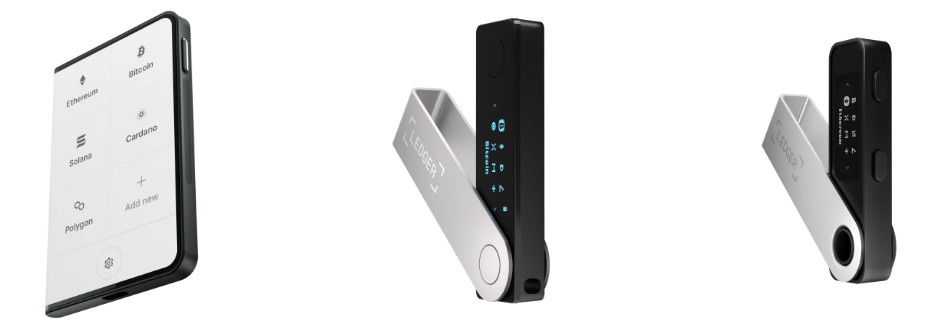
- As the leading manufacturer of hardware wallets, Ledger hardware wallet has made a name for itself. Their two flagship products, the Ledger Nano X and Ledger Nano S Plus, provide a remarkable user experience while protecting assets with their cutting-edge system. These gadgets enable users to fully secure their assets without compromising usability or compatibility when used in conjunction with the native Ledger Live application.
- One of the key features of Ledger’s hardware wallets is their robust security measures, including a secure chip that isolates the user’s private keys from the device’s main processor, a PIN code to unlock the device, and the ability to create multiple accounts and passphrases. But still it requires a 24 word seed phrase to access your funds.
Trezor
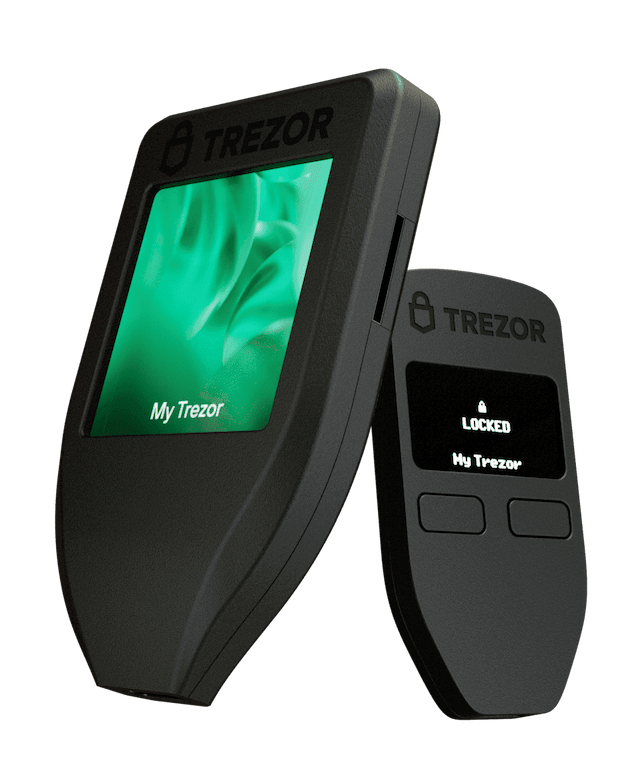
- Trezor was first introduced in 2014 by SatoshiLabs, a Czech Republic-based company. It offers both cold storage and hot wallet functionality, allowing users to manage their digital assets offline or online. It supports a wide range of cryptocurrencies, including Bitcoin, Ethereum, Litecoin, and many more.
- Trezor uses a hierarchical deterministic (HD) wallet structure, which means that each time a transaction is made, a new address is generated. This helps to maintain privacy and security, as it makes it more difficult to link transactions to a single address. But still it also expects you to keep your 24 word seed phrase safe if you don’t want to lose access of your funds.
KeepKey
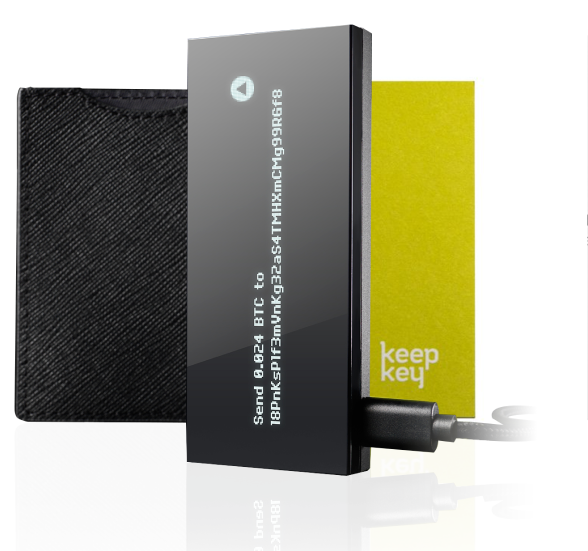
- KeepKey supports over 40 cryptocurrencies, including Bitcoin, Ethereum, and Litecoin. One of the standout features of KeepKey is its large and easy-to-read display, which makes it easy to navigate the interface and confirm transactions.
- Additionally, KeepKey generates a new private key for each transaction, adding an extra layer of security to your transactions. One downside of KeepKey is that it’s one of the more expensive hardware wallets on the market. Additionally, it’s a relatively large and bulky device compared to other wallets, which could be a concern for users who prefer a more compact device.
Feature Comparison
Now lets compare with features what each wallet has to offer in detail so you can make a right choice for your funds.
Key Features for comparison:
1. Eliminate paper backups (no seed phrase required)
Most seed phrase backups come in the form of paper or metal sheets, but have the risk of being damaged, lost, or stolen. A truly secure wallet system not only eliminates the problem of having a single point of failure but does not require a user to worry about seed phrases at all - essentially a seedless wallet.
Cypherock eliminates the use of seed phrase, instead, it uses a proprietary method for secure key generation that doesn’t rely on a seed phrase. This method is designed to be more secure than seed phrases, which can be susceptible to brute-force attacks if they are not sufficiently complex. On the other hand, Ledger and Trezor both use 24-word seed phrases, which provides a high level of security to the wallet. KeepKey uses a standard 12-word seed phrase but allows users to generate an additional passphrase, which adds an extra layer of security to the seed phrase. Overall, all four wallets offer strong security features, but Cypherock’s proprietary key generation method may provide additional security compared to seed phrases used by other wallets.
2. Open source with secure elements
Open-source software is essential for hardware wallets because it allows independent experts to review and audit the code for any vulnerabilities or weaknesses.
All four hardware wallets, Cypherock, Ledger, Trezor, and KeepKey, use open-source software for their wallets. However, the extent of open-source availability varies among the wallets.
Ledger has its firmware and applications available on GitHub as open-source, allowing for independent code review, but the hardware design is not open-source. Trezor has both its firmware and hardware design available as open-source, making it more transparent and allowing for community contributions. KeepKey’s firmware is open-source, but its hardware design is not.
Cypherock makes the X1 wallet code open for review while keeping the code for the X1 cards proprietary. Making the X1 wallet open source ensures that anyone can verify the wallet operations performed with the private keys while ensuring that 4 out of 5 parts are stored securely on the 4 X1 cards which have EAL 5+ secure elements.
3. Inheritance of your Crypto assets
Ledger does not have a formal inheritance feature. Users need to plan their own estate and make sure their recovery phrase or private keys are accessible to their chosen heirs. While Ledger does offer a “Legacy Contact” feature, it is not related to inheritance and instead allows users to designate a contact who can access their account in the event they lose access or pass away.
Cypherock allows users to divide their seed phrase into multiple parts and distribute them to different people. This ensures that even if one of the parts is lost or stolen, the entire seed phrase can still be recovered. This feature is also used for inheritance planning, as users can give each part to different inheirs, who can then combine them to access the crypto assets after the user’s death while Trezor is using Shamir Backup to implement the same. KeepKey offers an optional “Recovery Sentence” feature that allows users to create a passphrase that can be given to a designated beneficiary in the event of the user’s death. The designated person can then use the passphrase to access the user’s crypto assets.
Overall, while each hardware wallet has its unique approach to inheritance, they all provide features that allow users to manage their cryptocurrency assets and designate heirs in the event of their death or incapacitation.
4. Seed phrase vault
The capability of securing 4 or multiple wallets - each with a separate seed phrase with one physical device. Consider this example, a user has two wallets: a software wallet and a hardware wallet. This user has two seed phrases that are required to be backed up. The individual can import the seed phrase of their existing wallets into Cypherock, and use Cypherock as a seed phrase vault. Ledger and Keepkey do not offer this feature except Trezor.
5. All-in-one Portfolio Manager
Portfolio management is an essential feature for cryptocurrency investors, allowing them to track the performance of their investments and make informed decisions about buying and selling cryptocurrencies. Here’s a comparison of the portfolio management features offered by the four hardware wallets - Cypherock, Ledger, Trezor, and KeepKey:
- Cypherock’s CySync app provides an all-in-one portfolio management solution that allows users to manage multiple cryptocurrency accounts, track their portfolio’s performance, view price charts and market data, and access security features such as a password manager and a two-factor authentication system.
- Users currently use multiple hardware wallets to manage their portfolios like company funds, personal HODL funds, DeFi Investments, and NFTs investments. Users can manage all these multichain portfolios from within Cysync App as a single master portfolio manager app.
- Ledger’s Ledger Live app allows users to manage multiple accounts for each cryptocurrency application and provides real-time balance updates and transaction histories. It also includes a price chart and market data section.
- Trezor’s web-based interface, Trezor Suite, includes a portfolio management feature that allows users to track their cryptocurrency holdings, view price charts and market data, and access news and analysis from the crypto community.
- KeepKey’s web-based interface allows users to track their cryptocurrency holdings and view price charts, but it does not offer advanced portfolio management features like the other hardware wallets.
Use the promo code buybit2410, follow this link and get a 10% discount when buying a Cypherock X1 hardware wallet in the official online store of the manufacturer >>>
In summary, all four hardware wallets provide portfolio management features, but the level of functionality and integration with other features may vary. Cypherock’s CySync app offers the most comprehensive portfolio management solution, while Ledger and Trezor provide robust portfolio management features through their respective software interfaces. KeepKey’s portfolio management features are more basic compared to the other three wallets.
Conclusion
In conclusion, hardware wallets are an essential tool for securing cryptocurrency assets. When choosing a hardware wallet, it is crucial to consider factors such as security, ease of use, and additional features such as inheritance planning and portfolio management.
| Features | Cypherock | Ledger | Trezor | KeepKey |
|---|---|---|---|---|
| 1. 3000+ Assets supported | YES | YES | YES | YES |
| 2. No seed phrase backup required | YES | NO | NO | NO |
| 3. Inheritance | YES | NO | YES | NO |
| 4. Multiple Wallet Accounts | YES | YES | YES | YES |
| 5. Open source | YES | YES | YES | NO |
| 6. EAL5+ secure element | YES | YES | YES | NO |
| 7. Decentralized private key storage | YES | NO | YES | NO |
In this comparison, we have seen that Cypherock offers several unique features such as eliminating the need for seed phrases, all-in-one portfolio management, and multiple signature options. However, it is a relatively new player in the market, and its availability is limited.
On the other hand, Ledger, Trezor, and KeepKey have been around for longer and have established a reputation for security and reliability. They offer different features such as inheritance planning and Shamir backup. Each of these wallets has its pros and cons, and ultimately the choice depends on individual needs and preferences.
It is essential to remember that no hardware wallet is entirely immune to risks. Therefore, it is crucial to follow best practices such as keeping the device updated, keeping the recovery seed phrase secure, and verifying the device’s authenticity before use.
Overall, choosing a reliable hardware wallet is an investment in the security of cryptocurrency assets, and it is essential to conduct thorough research and consider all options before making a decision.
Source: Cypherock.com
Learn more about Cypherock X1:
- Cypherock X1 vs Traditional Hardware Wallets
- Security: Types of attacks on crypto hardware wallets, Cypherock X1
- How Cypherock Works - Safeguarding Your Crypto with the Cypherock X1
- Features - Discover the Disruptive Technology and Unmatched Security of Cypherock X1
- Getting Started - Download Cysync App, Cypherock X1
Learn more about the best TOP 30 hardware cryptocurrency wallets
You can see this list here.
TOP 29 Hardware Wallets, the Official Online Stores
| 1 |  | Trezor hardware wallet, the official online store |  |
| 2 |  | Ledger hardware wallet, the official online store |  |
| 3 |  | KeepKey hardware wallet, the official online store |  |
| 4 |  | BitBox02 hardware wallet, the official online store |  |
| 5 |  | CoolWallet hardware wallet, the official online store |  |
| 6 |  | ELLIPAL hardware wallet, the official online store |  |
| 7 |  | D'CENT hardware wallet, the official online store. |  |
| 8 |  | SafePal hardware wallet, the official online store |  |
| 9 |  | SecuX hardware wallet, the official online store |  |
| 10 |  | BC Vault hardware wallet, the official online store |  |
| 11 | 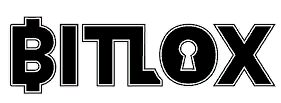 | BitLox hardware wallet, the official online store |  |
| 12 |  | Keystone hardware wallet, the official online store |  |
| 13 |  | ProKey hardware wallet, the official online store |  |
| 14 |  | NGRAVE hardware wallet, the official online store |  |
| 15 | 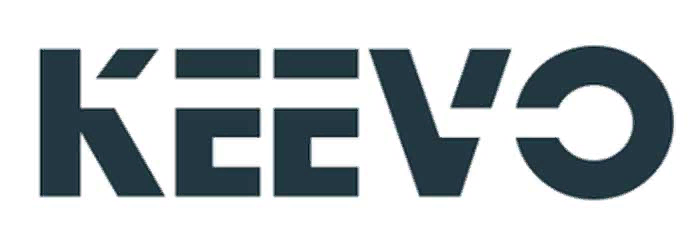 | Keevo hardware wallet, the official online store |  |
| 16 |  | GridPlus hardware wallet, the official online store |  |
| 17 |  | Ballet hardware wallet, the official online store |  |
| 18 |  | OPOLO hardware wallet, the official online store |  |
| 19 |  | Foundation (Passport) hardware wallet, the official online store |  |
| 20 |  | ImKey hardware wallet, the official online store |  |
| 21 |  | Tangem hardware wallet, the official online store |  |
| 22 |  | HashWallet hardware wallet, the official online store |  |
| 23 |  | Material Bitcoin hardware wallet, the official online store |  |
| 24 |  | ShieldFolio hardware wallet, the official online store |  |
| 25 |  | OneKey hardware wallet, the official online store |  |
| 26 |  | Blockstream Jade hardware wallet, the official online store |  |
| 27 |  | Cypherock hardware wallet, the official online store |  |
| 28 |  | Keepser hardware wallet, the official online store |  |
| 29 | 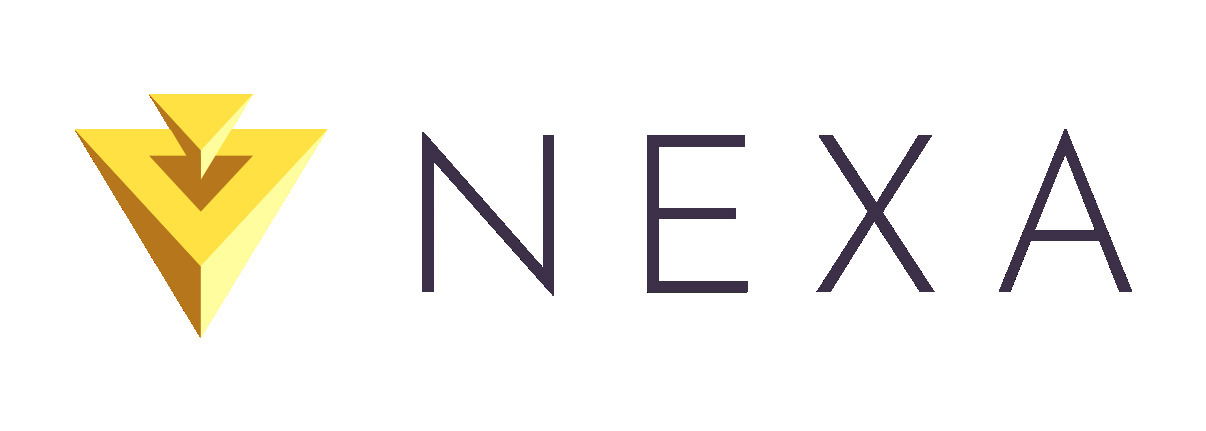 | NEXA hardware wallet, the official online store |  |
